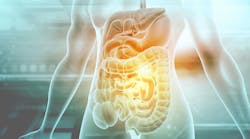Changes in the oral microbiome associated with mental health
Microbiome diversity is loosely defined as the total number of microbial species found within a given area of the body. Over the past few years, much of the focus has involved the microbiome diversity of the gut, as the microbes that live in the digestive system are of great assistance in the digestion of food and production of metabolites that convey health benefits, such as supporting the immune system, aiding brain function, and more. However, other organs of the body, such as the oral microbiome, also harbor microbiota that play significant roles in human health and disease.
Study on mental health and the oral microbiome
A recent study published in BMJ Mental Health showed that pregnant women with anxiety, depression, and high amounts of stress symptoms exhibited a richer oral microbiome.1 The study examined the relationship between maternal mental health and the oral microbiome in early pregnancy. The research aimed to explore whether the oral microbiome is associated with stress, anxiety, depression, and post-traumatic stress disorder (PTSD) symptoms in pregnant women. This study’s objective was to explore relations between measures of life stress, anxiety, depression and PTSD symptoms and the oral microbiome (alpha diversity, beta diversity, microbe profile) in a large, ethnically diverse, at-risk sample of women in their early second trimester of pregnancy. The second trimester of pregnancy was chosen because earlier pregnancy stress and poor mental health for many women persist throughout pregnancy and postpartum and predict more severe symptoms postpartum.2
The study involved 224 women in their second trimester, with most of those studied experiencing high stress. Saliva samples were collected from participants, and 16S rRNA gene sequencing was used to analyze the oral microbiome. The researchers assessed recent life stress, anxiety, depression, and PTSD symptoms. After analysis, participants were grouped as high versus low anxiety, depression, and PTSD.
Results showed significant associations between mental health symptoms and the oral microbiome. Women in the high-anxiety and/or depression groups had higher alpha diversity. Conversely, lower beta diversity differences were observed between groups with high and low PTSD symptoms, reflecting differences in microbial community composition.
What is alpha diversity vs. beta diversity?
Alpha diversity is a measure of the species diversity in an anatomic area such as the gut or mouth and is used to understand the richness and diversity of microorganisms in a sample.3 Alpha diversity is made up of two components: richness and evenness.
Beta diversity is a way to compare the composition of microbiomes between different people or body sites. It considers the number of different organisms in a sample, as well as the range of abundances for each organism. For example, the forearm has a high beta diversity because the microbiome varies a lot from person to person, but it doesn’t have a wide range of different microbiomes, so its alpha diversity is relatively small.
What do changes in the oral microbiome mean?
This study showed a greater abundance of phylum Proteobacteria and Firmicutes in women experiencing high recent life stress and/or depression compared with women with low to moderate levels. These changes are consistent with other studies showing changes in alpha diversity of the oral microbiome in heathy individuals under stress.4
Proteobacteria are gram-negative bacteria, and in healthy patients represent 2%–5% of bacterial sampling. In increased amounts, these bacteria are thought to cause inflammation and neuroinflammation by affecting blood-brain-barrier permeability to other bacteria. In the mouths of adults, oral Proteobacteria levels are positively related to systemic inflammatory markers, signaling a tendency toward inflammatory-related disease.5
An increase in Firmicutes can change the Firmicutes/Bacteroides ratio (in ideal health, this ratio is less than 0.9), signaling issues with metabolism, hormone dysregulation, and gut dysbiosis.
Finally, Spirochaetes, a member of the red complex, which is implicated in periodontal breakdown, were more abundant in women with high depression symptoms. Most of these changes have been associated with cortisol increase and its deleterious effects on the oral microbiome community, resulting in diseases such as periodontal disease.6
Study takeaways
- This study was the first to evaluate levels of stress or mental health and correlate it with changes in the oral microbiome in pregnant women.
- Correlations between inflammatory-associated changes in the oral microbiome with life stress, anxiety, depression, and PTSD symptoms in second-trimester pregnant women were made.
- Women with high anxiety and/or depression symptom groups showed altered alpha diversity.
- Women with high PTSD symptoms showed altered beta diversity.
- Further research is needed on the relationship between maternal mental health and the oral microbiome and how it can be a potential treatment intervention. Treat oral dysbiosis as a means of treating mental health in both pregnant and nonpregnant individuals.
- The oral microbiome may be a potential target for ameliorating poor psychological well-being during pregnancy; this could have important consequences for both mother and child.
Editor’s note: This article originally appeared in Perio-Implant Advisory, a chairside resource for dentists and hygienists that focuses on periodontal- and implant-related issues. Read more articles and subscribe to the newsletter.
References
- Alex AM, Levendosky AA, Bogat GA, et al. Stress and mental health symptoms in early pregnancy are associated with the oral microbiome. BMJ Ment Health. 2024;27(1):e301100. doi:10.1136/bmjment-2024-301100
- Fisher SD, Wisner KL, Clark CT, Sit DK, Luther JF, Wisniewski S. Factors associated with onset timing, symptoms, and severity of depression identified in the postpartum period. J Affective Disord.2016;203:111-120. doi:10.1016/j.jad.2016.05.063
- Andermann T, Antonelli A, Barrett RL, Silvestro D. Estimating alpha, beta, and gamma diversity through deep learning. Front Plant Sci. 2022;13:839407. doi:10.3389/fpls.2022.839407
- Stoy S, McMillan A, Ericsson AC, Brooks AE. The effect of physical and psychological stress on the oral microbiome. Front Psychol.2023;14:1166168. doi:10.3389/fpsyg.2023.1166168
- Simpson CA, Adler C, du Plessis MR, et al. Oral microbiome composition, but not diversity, is associated with adolescent anxiety and depression symptoms. Physiol Behav.2020;226:113126. doi:10.1016/j.physbeh.2020.113126
- Dubar M, Clerc-Urmès I, Baumann C, Clément C, Alauzet C, Bisson C. Relations of psychosocial factors and cortisol with periodontal and bacterial parameters: a prospective clinical study in 30 patients with periodontitis before and after non-surgical treatment. Int J Environ Res Public Health.2020;17(20):7651. doi:10.3390/ijerph17207651
About the Author

Scott Froum, DDS
Editorial Director
Scott Froum, DDS, a graduate of the State University of New York, Stony Brook School of Dental Medicine, is a periodontist in private practice at 1110 2nd Avenue, Suite 305, New York City, New York. He is the editorial director of Perio-Implant Advisory and serves on the editorial advisory board of Dental Economics. Dr. Froum, a diplomate of both the American Academy of Periodontology and the American Academy of Osseointegration, is in the fellowship program at the American Academy of Anti-aging Medicine, and is a volunteer professor in the postgraduate periodontal program at SUNY Stony Brook School of Dental Medicine. He is a trained naturopath and is the scientific director of Meraki Integrative Functional Wellness Center. Contact him through his website at drscottfroum.com or (212) 751-8530.


